We're missing urgent calls due to hospital waits - paramedic
- Published
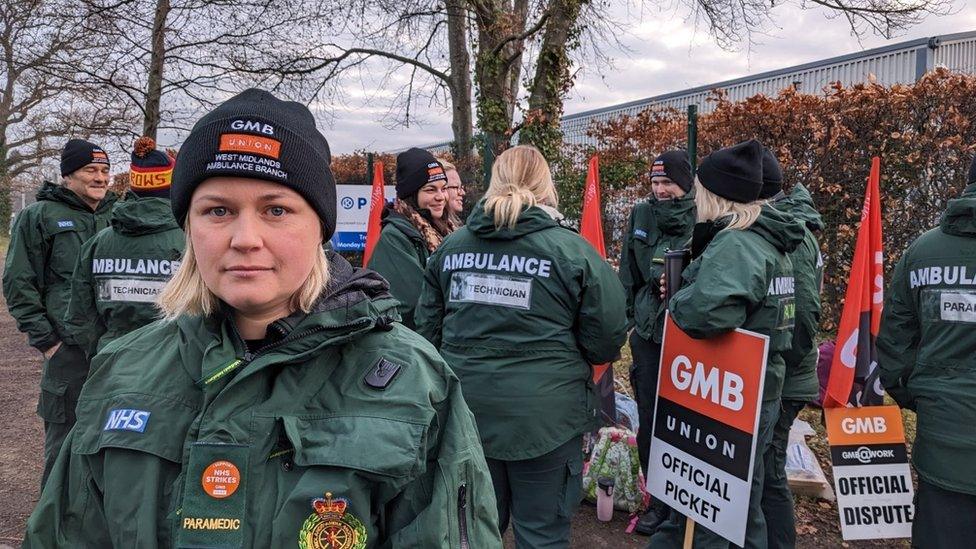
Chloe Cornwell said it is difficult being a single mum and working full time on her wages
Delays responding to urgent 999 calls because of ambulances queueing outside hospitals are "completely unacceptable", a paramedic says.
Chloe Cornwell is striking in Shropshire alongside thousands of ambulance staff in England and Wales in a dispute over pay and conditions.
Ms Cornwell said crews often waited with a patient for up to 12 hours and could not respond to urgent callouts.
"That [also] means we don't get a break for 12 hours," she said.
Crews have been unable to be sent straight out to the most serious cases, called category one calls and which include cardiac arrests and seizures, as they have had to stay with a patient in an ambulance until a hospital bed becomes free.
'Nothing but support'
Paramedic Alex Kapitanec said it was "soul destroying" not being able to do his job effectively.
"I know most of my colleagues have thought about leaving this job," Mr Kapitanec said.
However, both paramedics said since strike action had started, hospital wait times had gone down, which they believe is because of the public only calling them in an emergency situation.
"We've seen nothing but support, we've had people drop sweets and treats [to the picket line]," he said.
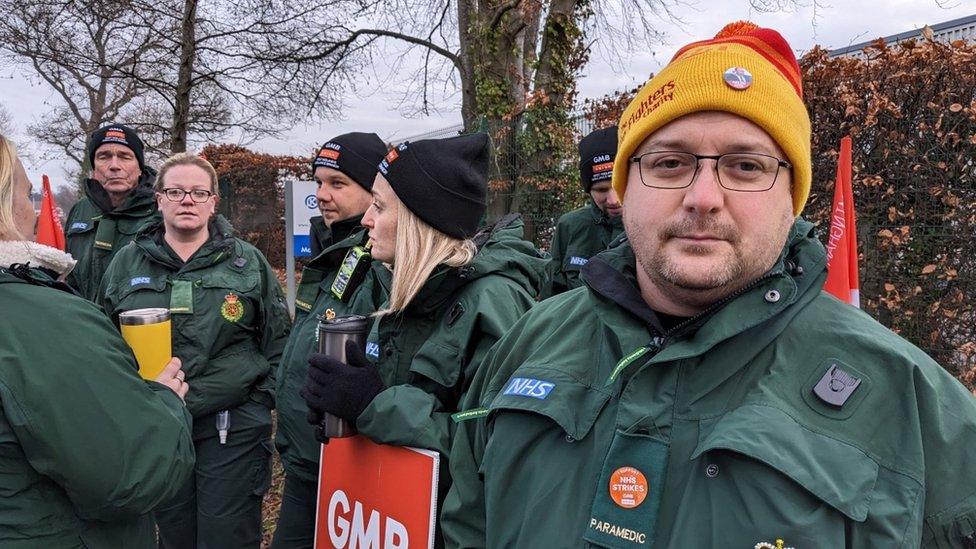
Alex Kapitanec said many crews striking would still respond to life threatening 999 calls
Mr Kapitanec added while many crews were striking, they were still responding to "life threatening category one emergencies".
"We're not completely abandoning the public, it is not something we can do in our conscience," he said.
Ms Cornwell added while the pay she got as a paramedic was more than she previously earned as a healthcare assistant, it was still difficult to live on as a single mum working full time.
When she was an assistant, she said she was on £16,000 a year.
"I think that my pay is OK, but I'm also here striking so that everybody who gets paid a lot less than I do, also gets a better pay... I understand what job they do," she said.
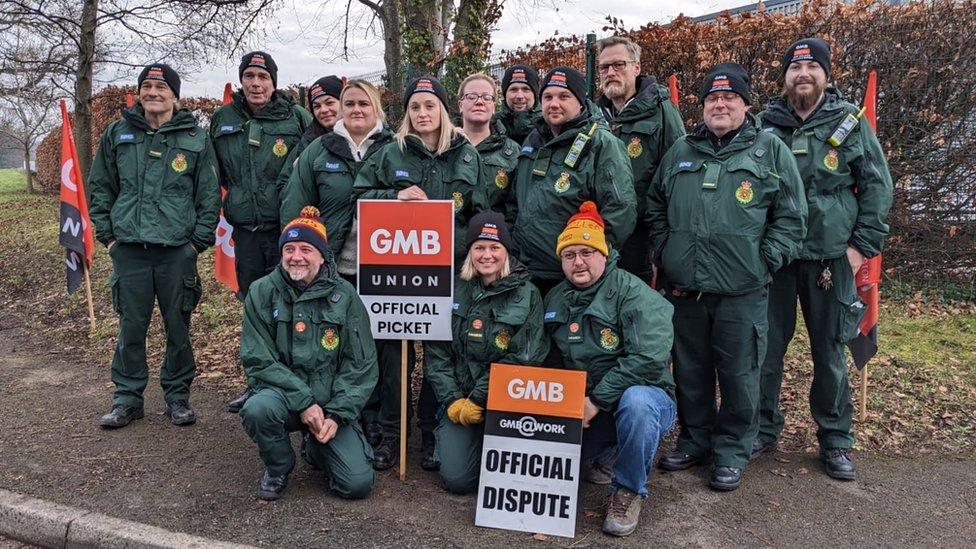
The next ambulance strike in the West Midlands region is due to happen on 6 February
The three unions representing ambulance workers - GMB, Unison and Unite - are asking for a pay rise above inflation.
The government says this is "unaffordable" and that pay rises are decided by independent pay review bodies.
NHS staff in England and Wales - including nurses - have already received an average increase of 4.75%. The lowest paid were guaranteed a rise of at least £1,400.
The next ambulance workers' strike day in the West Midlands region is due to be 6 February..

Follow BBC West Midlands on Facebook, external, Twitter, external and Instagram, external. Send your story ideas to: newsonline.westmidlands@bbc.co.uk
- Published2 May 2023
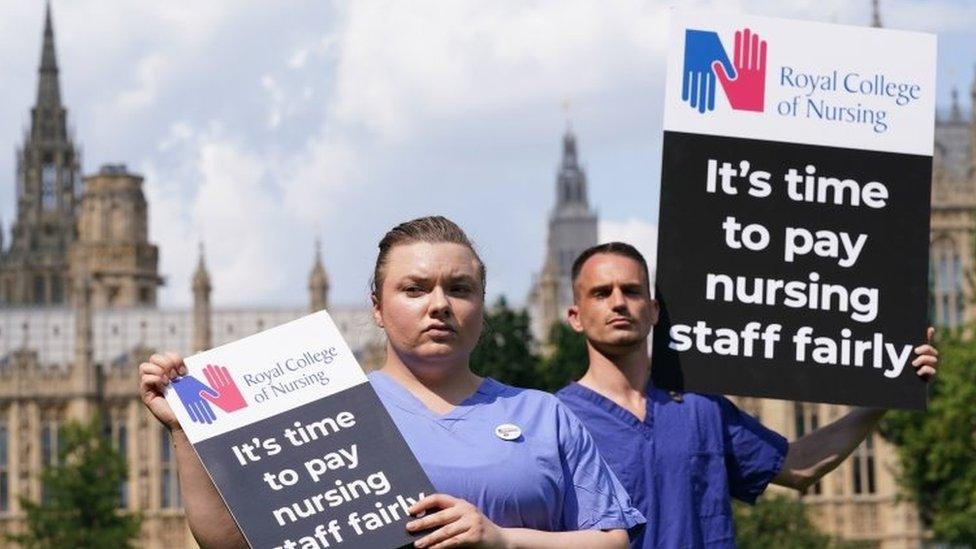
- Published23 January 2023
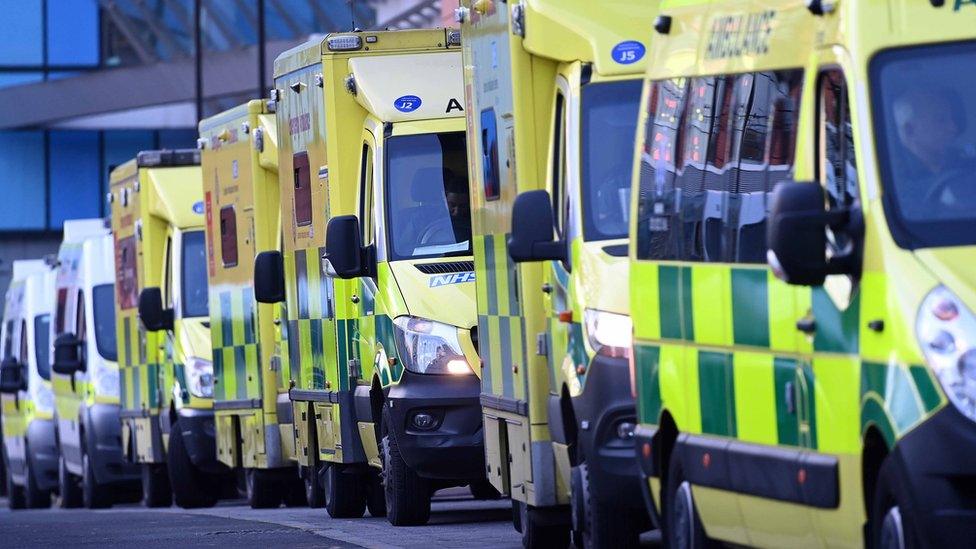
- Published21 January 2023
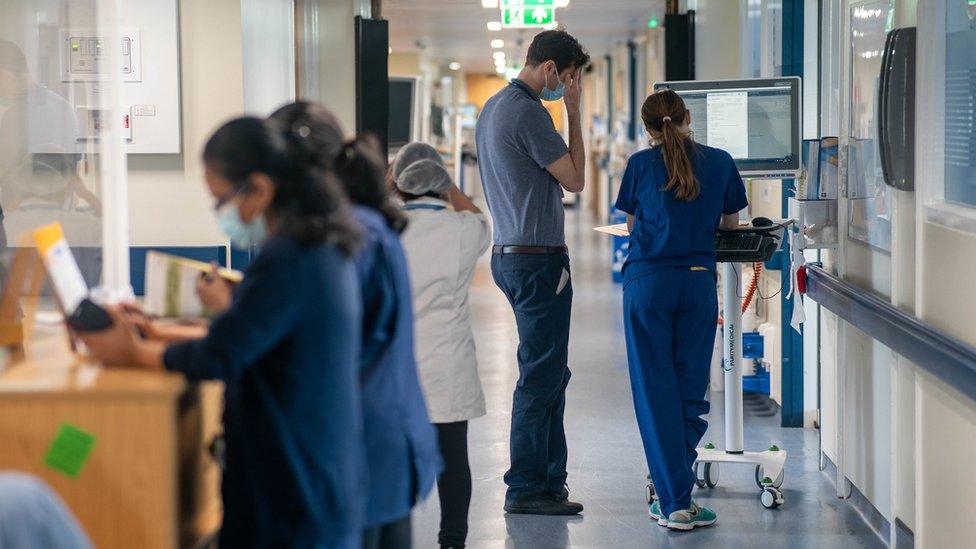
- Published20 January 2023
